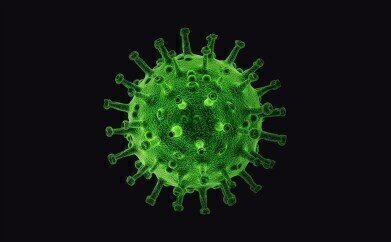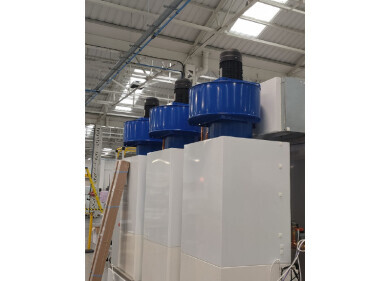Laboratory Products
Why Are COVID-19 Infections So Varied?
Oct 18 2020
New research from the Howard Hughes Medical Institute has offered scientists insight into why COVID-19 infections can vary so drastically from patient to patient. In two separate studies, the team discovered some severe COVID-19 cases are linked to aggressive auto-antibodies and genetic mutations in important immunity genes. Both circumstances compromise the immune system and could be responsible for worsening COVID-19 symptoms in some patients.
Genetic mutations and auto-antibodies at work
In one study the team noted that around 3.5% of all severe COVID-19 patients suffered from genetic mutations in their antiviral defence mechanisms. These mutations compromise the activity of interferon molecules, which detect malicious bacteria and viruses, and trigger immunological responses. Without them, the body’s defences are weakened and it’s easier for diseases like COVID-19 to take hold. At least 10% of COVID-19 patients with life-threatening symptoms were creating auto-antibodies that fail to fight off the virus and instead attack the immune system.
The findings of both studies were reported in the journal Science, with lead author Jean-Laurent Casanova explaining how genetic mutations and auto-antibodies could be responsible for the radical variations of severity seen in COVID-19 patients. Casanova, who works as a Howard Hughes Medical Institute Investigator at The Rockefeller University, described the studies as “a stunning observation” and adds "these two papers provide the first explanation for why COVID-19 can be so severe in some people, while most others infected by the same virus are okay."
Researchers call for proactive auto-antibody testing
The studies have exciting implications for both treatment and diagnostics of COVID-19, with Casanova asserting patients that test positive should also be tested for auto-antibodies. It’s possible that extracting these antibodies from the bloodstream could help the body fight off COVID-19 and improve symptoms.
"It's an unprecedented finding," says Isabelle Meyts, co-author of the study and a paediatrician at the University Hospitals KU Leuven Belgium. Meyts says that proactively testing for auto-antibodies could help “predict who will become severely ill” and make it easier to protect vulnerable citizens.
An explanation for gender variability
Of all patients with auto-antibodies, a huge 94% were men. This could also help explain the gender variability of COVID-19 and why males are more likely to develop more severe cases than their female counterparts. Moving forward, the team hope the studies could reinvent the way health officials develop treatments, implement lockdowns and distribute vaccines.
To find out more about the latest technologies being used to develop treatments for COVID-19 don’t miss Solving Freeze Drying Bottlenecks For Diagnostics and Vaccines Production In The ‘New Normal.’
Digital Edition
Lab Asia 31.2 April 2024
April 2024
In This Edition Chromatography Articles - Approaches to troubleshooting an SPE method for the analysis of oligonucleotides (pt i) - High-precision liquid flow processes demand full fluidic c...
View all digital editions
Events
Apr 24 2024 Jakarta, Indonesia
Apr 25 2024 Istanbul, Turkey
Apr 28 2024 Montreal, Quebec, Canada
May 05 2024 Seville, Spain
InformEx Zone at CPhl North America
May 07 2024 Pennsylvania, PA, USA


.jpg)















